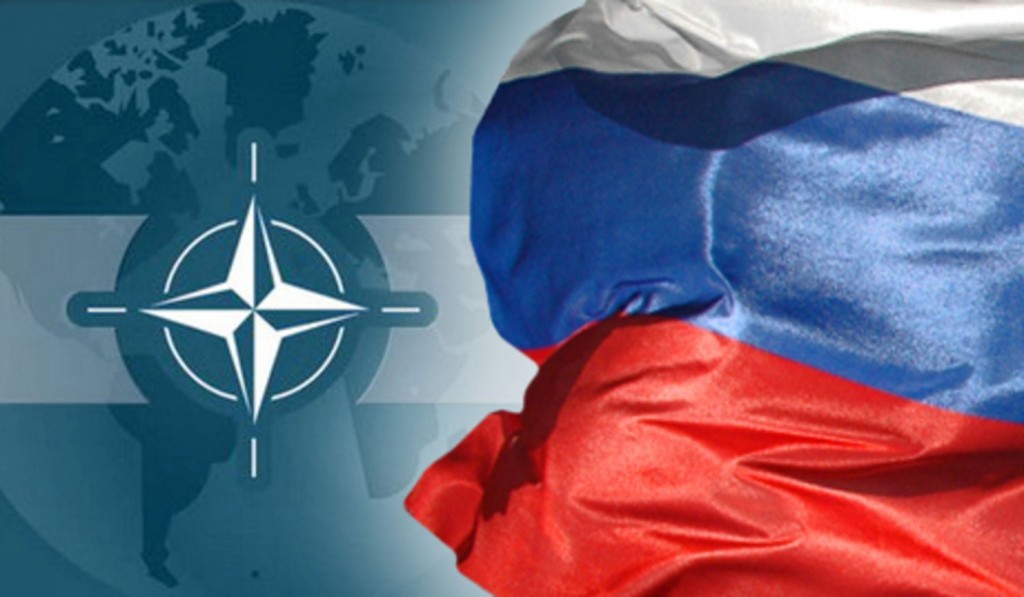 Brandon Turbeville
Brandon TurbevilleActivist Post
June 21, 2016
Every day the U.S. and NATO insist on continuing the destabilization of Syria is a day closer to the potential for a cataclysmic confrontation between the Western powers and Russia. While Russia has shown considerable restraint and NATO has attempted to push Russia as far as possible without going over the line, the world is rapidly approaching a situation where one misstep could result in not only regional but worldwide conflict.
Such a potentially disastrous occurrence almost took place yesterday when Russian and American jets came dangerously close to combat over the skies of Syria during the course of a Russian bombing campaign against terrorists in al-Tanf near the Jordanian border.
“The mid-air confrontation occurred between F/A-18 fighters scrambled by the Pentagon and several SU-34s, Moscow's most advanced bombers,” Ted Thornhill writes for the Daily Mail. “The Russian jets had struck a 200-strong garrison of Syrian rebels fighting the Islamic State in At-Tanf, near the Jordanian border.”
The Russian military is not denying the bombing raid but it is denying that it targeted Western-backed terrorists (i.e. terrorists publicly claimed by the United States), making the argument that the United States did not make the positions of its proxy terrorists known to the Russian Air Force. Russian Major General Igor Konashenkov, Spokesman for the Russian Defense Ministry, claimed the air strike was more than 300 kilometers (186 miles) away from the areas the U.S. had designated as being “controlled by legitimate opposition forces.”
The Daily Beast, one of the first mainstream outlets to report the incident, recounts the standoff as follows:
The U.S. Navy scrambled F/A-18 fighters to intercept the Russians, the Los Angeles Times reported. The Navy has deployed two aircraft carriers to the region for strikes on ISIS. As the F/A-18s approached the Su-34s, officials with U.S. Central Command—which oversees America’s wars in the Middle East and Afghanistan—used a special hotline to contact their Russian counterparts directing Russia’s own intervention in Syria.
Arriving over At Tanf, the American pilots apparently spoke directly to the Russian aviators. “Pilots CAN communicate with one another on a communications channel set up to avoid air accidents,” Central Command confirmed in a statement to The Daily Beast.
Washington and Moscow had established the hotline as part of a so-called Safety of Flight Memorandum of Understanding that the two governments signed in October specifically in order to avoid the kind of aerial confrontation that occurred over Syria last week.
With the American jets flying close enough to visually identify the Su-34s, the Russians departed the air space over At Tanf. Some time shortly thereafter, the F/A-18s ran low on fuel and left the area in order to link up with an aerial tanker. That’s when the Su-34s reportedly returned to At Tanf—and bombed the rebels again.
. . . . .
The next day, senior U.S. Defense Department officials organized an “extraordinary” video conference with Russian counterparts to discuss the incident. The meeting included Acting Assistant Secretary for International Security Affairs Elissa Slotkin and U.S. Marine Corps Lt. Gen. Kenneth McKenzie, a strategic planner on the Pentagon’s joint staff, plus unspecified Russian Ministry of Defense officials.
“Department officials expressed strong concerns about the attack on the coalition-supported counter-ISIL forces at the At Tanf garrison, which included forces that are participants in the cessation of hostilities in Syria, and emphasized that those concerns would be addressed through ongoing diplomatic discussions on the cessation of hostilities,” Defense Department spokesman Peter Cook explained in a statement.
"Regarding safety, department officials conveyed that Russia’s continued strikes at At Tanf, even after U.S. attempts to inform Russian forces through proper channels of on-going coalition air support to the counter-ISIL forces, created safety concerns for U.S. and coalition forces,” Cook continued. “Department officials requested Russian responses to address those concerns.”
The Russian military acknowledged that the video conference took place but did not elaborate on the specifics of the discussion.
The Russian Defense Ministry did respond publicly to the situation with Igor Konashenkov stating that “The Russian Defense Ministry has been offering its American colleagues for the past few months to draw up a unified map that will contain relevant information on the locations of forces active in Syria. However, we have been unable so far to make any significant progress in this issue.”
This incident now stands as the latest in a series of dangerous standoffs between the United States and Russia, the latter being the only party acting legally in the context of the Syrian crisis. If the United States, NATO, Israel, and the GCC do not soon abandon their plans to destabilize and destroy the Syrian government, such incidents may reach a point where cooler heads no longer prevail or where an itchy trigger finger might ignite much of the world in confrontation.
Brandon Turbeville – article archive here – is the author of seven books, Codex Alimentarius — The End of Health Freedom, 7 Real Conspiracies, Five Sense Solutions and Dispatches From a Dissident, volume 1 andvolume 2, The Road to Damascus: The Anglo-American Assault on Syria, and The Difference it Makes: 36 Reasons Why Hillary Clinton Should Never Be President. Turbeville has published over 650 articles on a wide variety of subjects including health, economics, government corruption, and civil liberties. Brandon Turbeville’s radio show Truth on The Tracks can be found every Monday night 9 pm EST at UCYTV. His website is BrandonTurbeville.com He is available for radio and TV interviews. Please contact activistpost (at) gmail.com.
This article may be freely shared in part or in full with author attribution and source link.
No comments:
Post a Comment
Note: Only a member of this blog may post a comment.